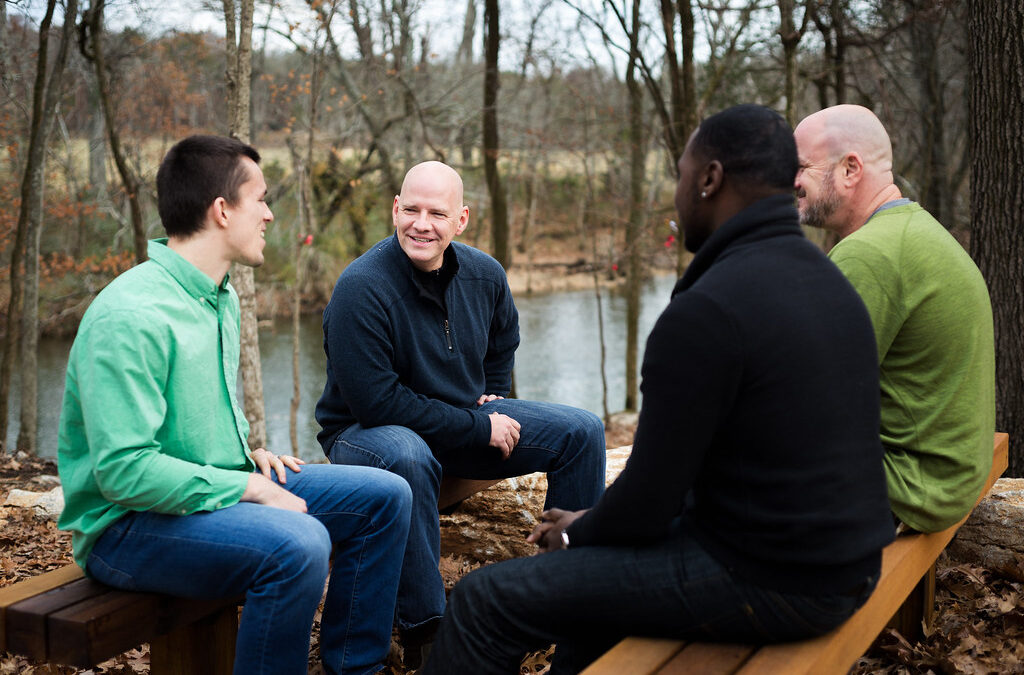A Voice for the Planet: Sir David Attenborough’s Enduring Legacy
In an era where environmental crises seem to be accelerating, one voice has been a constant beacon of hope and urgency: Sir David Attenborough. Over decades of broadcasting, Attenborough has brought the natural world into our homes and reshaped our relationship with it. His influence goes beyond documentary filmmaking; it lies in his ability to evoke empathy, awareness, and action. With the release of Ocean in cinemas on the 8th May, came the stark reminder that nothing ever lasts forever, but the debt owed to Sir David Attenborough’s life and career.
A Groundbreaking Career in Environmental Storytelling
When Attenborough began his career in the 1950s, few could have imagined how profound his impact on public attitudes would be. His pioneering work in shows like Life on Earth (1979) and The Blue Planet (2001) introduced millions of viewers to the extraordinary biodiversity that exists on our planet. Through his storytelling, Attenborough highlighted the beauty of nature and its fragility in a way unseen before. He made the natural world accessible, awe-inspiring, and emotionally compelling to audiences far beyond the scientific community.
Revealing the Fragility and Wonder of Nature
Attenborough’s documentaries helped people understand the interconnectedness of all life forms and the importance of preserving these intricate ecosystems. When people truly see and understand the wonders of nature, they are far more likely to protect it.
What sets Attenborough apart from many natural historians and broadcasters is his ability to combine admiration for nature with an urgent call for action. While his early work emphasised the marvels of the animal kingdom, in recent years, his documentaries have increasingly sounded the alarm about the dire state of the natural world. Shows like The Blue Planet II (2017) and Our Planet (2019) don’t just celebrate wildlife; they document the devastating effects of human activity, such as plastic pollution, climate change, and habitat loss.
In a 2025 BBC interview, Attenborough emphasised the urgency of the situation, stating, “We are almost out of time,” highlighting the critical state of the world’s oceans and their importance to our planet’s future.
The Attenborough Effect: A Catalyst for Global Change
These later works serve as a stark reminder that the beauty of nature is under threat, and Attenborough’s direct engagement with these issues has sparked conversations across the globe. For instance, after the airing of Blue Planet II, there was a noticeable shift in consumer behaviour. Plastic usage declined, and corporations and governments made concrete pledges to reduce plastic waste. The Attenborough Effect, a term now synonymous with heightened environmental awareness, has brought widespread attention to the need for systemic change.
Interested in the fight for the climate? Read about the new High Seas treaty!
The Attenborough Effect refers to the profound influence Sir David Attenborough’s documentaries and public advocacy have had on global environmental awareness, inspiring millions to take action on climate change, biodiversity loss, and pollution. It signifies how Attenborough’s voice, through unparalleled storytelling and engaging narratives, has effectively shifted public perception and encouraged tangible change in how individuals, corporations, and governments approach environmental conservation.
Plastic Pollution and the Rise of Environmental Consciousness
While measuring precisely how much the Attenborough Effect alone has saved the climate is difficult, ample evidence shows that his work has significantly raised awareness, influenced behaviour, and sparked real-world policy changes.
One of the most immediate impacts of the Attenborough Effect came after the release of Blue Planet II in 2017. The documentary highlighted the devastating effects of plastic pollution in the oceans and dramatically increased global awareness. Attenborough’s passionate commentary about the dangers of single-use plastics spurred a wave of environmental consciousness. According to a 2018 study published by the Journal of Environmental Psychology, awareness of plastic pollution surged following the airing of Blue Planet II. Surveys showed that nearly 80% of viewers reported reducing their use of plastic in the months after watching the show.
Influencing Policy and Corporate Responsibility
The Attenborough Effect has also influenced policy decisions and corporate behaviour. Following the airing of Blue Planet II, the UK government announced a ban on plastic straws, stirrers, and cotton buds in 2018. Similarly, large corporations like Coca-Cola, Unilever, and McDonald’s made pledges to reduce their plastic waste, with some vowing to make their packaging recyclable or biodegradable. These steps were partly catalysed by the heightened public outcry triggered by Attenborough’s portrayal of the plastic crisis.
Tackling Climate Change and Biodiversity Loss
Sir David Attenborough’s recent efforts, particularly in Our Planet (2019), have focused heavily on the interconnectedness of climate change and biodiversity loss. His call to action on these issues resonates globally, especially with younger generations. In a 2020 interview, Attenborough stated, “This is the last chance. There are short-term problems and long-term problems. But [climate change] is not only a long-term problem; this is the biggest problem humanity has ever faced” (Metro).
This message has reinforced the urgency of addressing climate change, leading to widespread youth-led climate movements such as Fridays for Future, which have continued to build momentum since Greta Thunberg’s rise to prominence. Attenborough’s documentaries helped provide a scientific and emotional foundation for these movements, framing the climate crisis not as an abstract future threat but as an immediate existential challenge.
Changing Lifestyles, Changing Minds
A survey conducted by the environmental charity WWF in 2019 found that after watching Attenborough’s documentaries, 40% of respondents in the UK began to make significant lifestyle changes. These included reducing meat consumption, adopting a more sustainable diet, and embracing eco-friendly practices such as using electric vehicles or opting for renewable energy sources.
Attenborough’s work has also profoundly impacted how we view nature and our relationship to it. His films have helped bridge the gap between scientific research and public awareness, making complex environmental issues more accessible to a broad audience. A 2020 survey by YouGov found that 70% of respondents felt more motivated to reduce their carbon footprint after watching one of Attenborough’s documentaries.
Empowering the Next Generation of Environmental Stewards
Attenborough’s most significant contribution to conservation is his ability to inspire and empower younger generations. His calm and resolute tone instils hope, reminding us there is still time to make a difference. At a time when climate change is a pressing issue, young people have become the driving force behind many global conservation movements. Whether through the rise of climate strikes led by figures like Greta Thunberg or grassroots environmental organisations, Attenborough’s voice has validated these movements, providing a moral and intellectual foundation for young activists.
Education, Careers, and a Legacy in the Classroom
Furthermore, his advocacy for biodiversity and conservation has found its way into classrooms and educational programs. Attenborough has become a bridge between scientific research and public awareness, making complex environmental issues comprehensible and relatable to all ages. His documentaries have ignited careers in science, conservation, and environmental policy for millions. He’s not just shaping attitudes, he’s shaping the future of conservation efforts.
While Attenborough’s impact has been nothing short of revolutionary, it’s also evolving. He is no longer merely a broadcaster but a global advocate for sustainability, speaking at international platforms like the United Nations Climate Change Conferences and the World Economic Forum. His powerful speeches on the dangers of environmental degradation and the importance of conservation have influenced policy decisions, raised public awareness, and even shifted corporate priorities.
Honouring a Living Legend
Attenborough’s legacy continues to shape how we view the natural world. However, as his health declines with age, there is an increasing sense of urgency to honour his contributions during his lifetime. We must acknowledge his immense impact on our understanding of wildlife conservation and pay tribute to him while he is still with us. The lessons he’s imparted over the years, from his calm, authoritative voice to his passionate calls for action, are invaluable. By supporting the causes he cares about, we show that his influence will be remembered and acted upon. We owe it to him and the planet to live up to the urgency he has steadfastly communicated throughout his career.
One of the most striking aspects of his legacy is his ability to blend scientific rigour with emotional appeal, balancing optimism with urgency. He reminds us that conservation is not a matter of choice but a necessity. And yet, he delivers this message not with despair, but with the hope that we, as a global community, can still take action. But as he said in his 2020 address to the UN, “The window of opportunity is closing, and if we fail to act, we will never be able to undo the damage.” (BBC)
The legacy
David Attenborough has fundamentally transformed our collective attitude toward wildlife conservation. He has awakened a global consciousness about our environmental challenges by presenting the natural world with wonder, urgency, and insight. His work has reshaped how we think about our planet, shifting the conversation from passive admiration of nature to active stewardship. As we face unprecedented environmental challenges, Attenborough’s legacy is a beacon of hope, a reminder that our actions today can ensure a future where the natural world thrives.
It is impossible to overstate this one voice’s role in changing the course of conservation history. And while his work is far from finished, it is clear that David Attenborough’s influence will resonate for generations to come, shaping attitudes and real-world action in the fight to protect our planet.



